CBD Research - How CBD Works for Depression
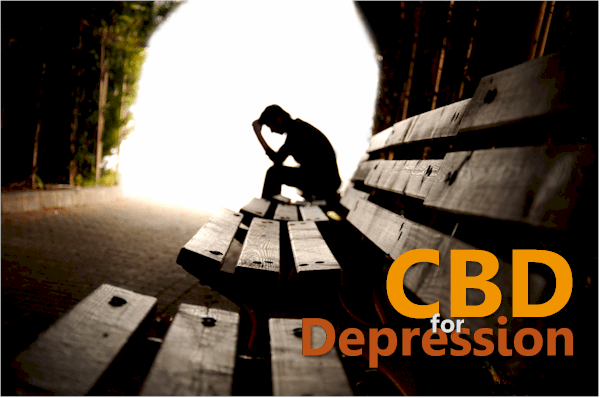
CBD AND DEPRESSION – WHAT DOES RESEARCH SAY?
None of the statements on this website have been evaluated by the United States Food and Drug Administration. CBD products are not intended to diagnose, treat, cure, or prevent any disease. A doctor's advise should be sought before using CBD products especially if you have a serious medical condition, use prescription medications, are pregnant, or are nursing a child.
We've covered anxiety in-depth already.
Let's talk about the twin issue of depression and CBD.
50% of people that experience one also gets hit with the other. They can go hand in hand with.
"Hit" is the operative word. It's a brick wall!
For anyone who has suffered or known someone close who has, it's a tremendous level of hardship.
Just suffering.
15% of people will experience an episode of major depression during their life and that's probably underrated.
People still feel a tremendous amount of shame and stigma from depression which doesn't make sense!
It's just chemistry.
I know first hand as I've seen the most upbeat person for 20 years get hit with about during perimenopause.
As she put it, no amount of talk therapy, medication, or exercise was going to cut through the wall of hormones and neurotransmitters that were in flux.
Like fighting the tide.
And we tried everything!!
- Nutrition is driven by genetic data (B Complex, Magnesium, Choline, MTRR, COMT, etc)
- Various supplements (5HTP, Acetyl L Carnitine, St John's Wort, Theanine, etc)
- Lifestyle changes (daily exercise, tai chi, medication, lost weight, organic eating, probiotics, etc)
- Prescription medications (Lexapro, Xanax, valium, Klonopin, etc)
- Straw grasping (vagus nerve stimulator, Fisher Wallace brain stimulation, etc)
I mean everything!
Our pantry is a killing field of supplement and medication bottles.
None of that really touched it.
But here we are...feeling 95% there.
It was simply a function of restoring balance...hormones and neurotransmitters driven by some nutrition supplementation for genetic quirks.
And oh yes...CBD.
Just yesterday, she was laughing about the few sessions with the therapists.
"I was in such brain fog, I couldn't even really follow what she was saying!"�
You can read more about her story here (especially if you're nearing or in perimenopause) but we're here to look at CBD.
If you're grasping for relief like we were, you can jump right to the CBD shopping guide (look at depression heading) here:

Otherwise, let's get into CBD and depression with current research to back it up:
- A quick look at depression
- Can CBD help with depression?
- CBD and depression research and studies
- What are CBD side effects with depression?
- How long does it take for CBD to work for depression?
- Best CBD for depression
- CBD for depression reviews and testimonials
- What dosage of CBD for depression
- Where to buy CBD for depression
We saw the effect first hand but we want research!
First, let's look at the enemy....depression itself.
A Quick Look At Depression
It's amazing that we work at all.
The number of things that have to fire off at just the right amount and just right time...millions of time a second...in billions of cells!
Just in your brain!
Now, we need to look at actors involved in the dance of feeling all right.
Depression doesn't mean anything's wrong with you.
It just means that chemistry isn't happening in the body and brain at the ideal level.
We're not talking about the occasional "feeling down" periods which we all get.
This is more oppressive.
Something just isn't flowing correctly.
Before we get into CBD, we'll look at what's going on with depression.
Healthy mental functioning is a result of a careful dance between two and maybe even three subsystems:
- Nervous system – neurotransmitters
- Endocrine system – hormones
- Gut or Immune system – neurotransmitters, gut biome, and inflammatory actors
Those are big systems with different actors that are in a constant dance or...battle!
The body and brain work this way.
There some actors that will boost a given effect while others will reduce it.
Why?
Too much can be bad (mania for example) while too little can be bad (depression).
It's a constant tug of war and various tripwires and checks/balances.
We win when the two sides of a given partnered pair are in balance.
Balance. Homeostasis (a big work to mean in a stalemate...balance).
Remember those words...they're really important for CBD and depression.
So who are the actors?
- Neurotransmitters – Serotonin, norepinephrine, glutamate, and dopamine
- Hormones – Progesterone, Estrogen, and Testosterone
A quick (very) synopsis of the most critical actors for depression.
- Serotonin is your general "feel good" hormone. It's a MAJOR player.
- Norepinephrine is your adrenalin transmitter but it's important at smaller levels
- Dopamine is your reward hormone. Feeling joy in doing something!
- Glutamate is interesting...it's excitatory...the opposite of "blahhh"
- Progesterone is the mother of hormones and generally has a calming effect.
- Estrogen (even men have it) interplays with the other hormones and neurotransmitters
- Testosterone imparts a zest for life and also a "devil may care" effect
All of these chemicals (and many others) have to balance out to feel "right".
The neurotransmitters are operating on a timescale of 1000's of a second.
The hormones are operating longer term and even cyclically (day/night, monthly, etc).
Either way, this is a rich symphony of chemical sound where every instrument has to play at the right time, in the right note, and with the right pauses.
Again...it's a miracle we can even get up in the morning.
Let's address why sometimes we can't. Depression.
All of these chemicals have to be in a certain balance. Homeostasis.
There are mechanisms in the body to adjust when there's an outside influence (a tuba in the audience starts playing).
This could be a million things:
- Stress in life
- Natural substances in our food
- Sun, rain, wind, and elements
- Sleep variations
- Heat, Cold, Seasons, Etc
Those are the basics we should interact with. Our bodies have had a few million years to adjust to those.
Let's fast forward to the last 50 years.
Here's the issue.
Let's now throw this chemical symphony into a sea of new chemistry:
- Endocrine (hormone) disruptors in food and plastics
- Toxic chemicals found in our blood now (DDT, fire retardant, etc)
- Pesticides and food contaminants (glyphosate, DDT, antibiotics, etc)
- Heavy metals (arsenic, lead, etc)
We all have this in our bodies now.
In fact, a study of umbilical cord blood found 287 chemicals present:
Among them are eight perfluorochemicals used as stain and oil repellants in fast food packaging, clothes and textiles including the Teflon chemical PFOA, recently characterized as a likely human carcinogen by the EPA's Science Advisory Board – dozens of widely used brominated flame retardants and their toxic by-products; and numerous pesticides.
Of the 231,000 chemical legal to use in food and products, most of them are not tested for effects on hormones and neurotransmitters.
It's too complicated!
Most importantly, don't look for something bad if you think you might find it!
Our poor nervous and endocrine system.
It was designed for walking eight hours a day in the sun with an occasional lion scare.
If the gyration of the monthly cycle (men have it too) can upset the apple cart, what does a steady flow of BPA (can lining that mimics estrogen) or one of the 13,000 chemicals found in cosmetics do?
Applecart DOWN!
So we set the stage for depression.
Of course, there are genetic differences that might make some people susceptible.
For example, COMT is a gene that governs (among other things) the breakdown of cortisol and estrogen.
If you have a faulty version, you don't break that down as well.
You can't get rid of adrenaline basically!
Anxiety, maybe??
Women are hit by depression at double the rate than men.
This is probably just a function of a much more complicated symphony (more hormones that need to come out just perfect).
Post-Partum depression, perimenopause depression, and even monthly cycle depression all point to the sophistication of a female's balancing act.
In today's modern world of chemistry, this is EVEN trickier to pull off.
So...where does CBD come into play?
Can CBD Help With Depression
There's another system we need to talk about (the last one...I promise).
The endocannabinoid system.
That's a mouthful.
Think of the endocannabinoid system as the conductor.
Hey flute, a little less of you!
Here's a quick graphic of this system:
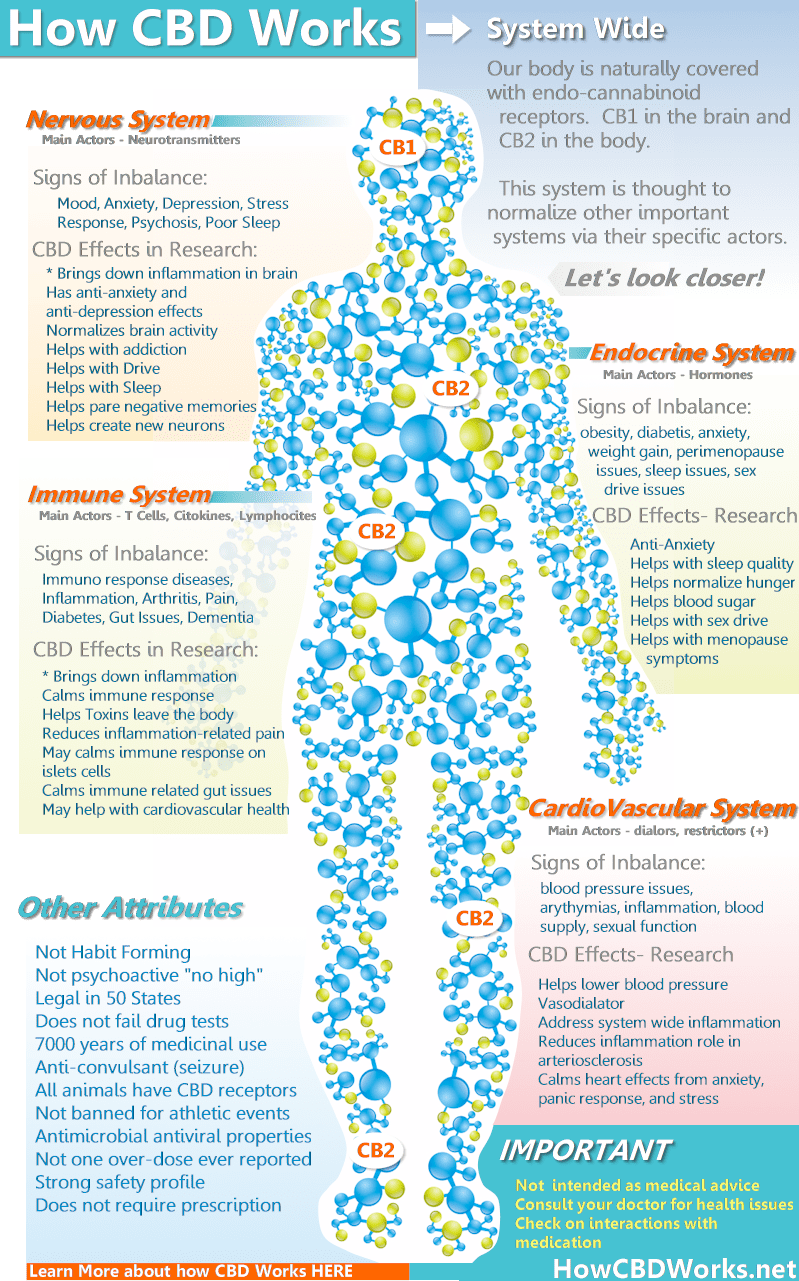
The current thought is that this system helps to maintain homeostasis on these systems (at least):
- Nervous system (neurotransmitters)
- Endocrine system (hormones)
- Immune system (body defenders and inflammation)
As well as a few others.
In fact, it is system-wide.
Its job appears to be the balance of the other systems.
Check out our How CBD Works and the CBD Beginners Guide here for more background on this role.
It might be the one point in the body that's just...getting...beat...up by our modern chemistry.
It's overworked, understaffed, and falling behind.
Mickey Mouse marshaling the buckets of water to no avail!
So why does CBD have such an effect across so many seemingly different areas of the body (depression and arthritis??)
CBD exerts an influence on this endocannabinoid system which is sorely losing its battle for balance.
It appears to interact with our own natural endocannabinoids like anandamide.
There are over 150 research projects in the works now due to this seemingly powerful effect with such a high safety profile.
Let's look specifically at what research is showing for CBD and depression.
CBD Depression Studies And Research
Lots to cover here and a slew of new experiments are on the way.
First, some hints on how CBD is influencing depression.
Some hints point to its interaction with 5HT, an important intermediary for serotonin.
...suggest that CBD exhibited anti-anxiety and antidepressant effects in animal models discussed. Most of the studies demonstrated a good interaction between CBD and the 5-HT1A neuro-receptor.
What about pleasure-seeking and pain avoidance, given the fancy name, prohedonic:
CBD showed a prohedonic effect on the WKY rats at 30 mg/kg in the SPT.
Depression is often exhibited as a lack of "lust for life"� so this small slice of behavior speaks positively for CBD. The non-CBD subjects showed no change in behavior.
That's a good start!
How fast does CBD work on depression...we need help now!
Good news there:
our findings indicate that CBD could represent a novel fast antidepressant drug, via enhancing both serotonergic and glutamate cortical signaling through a 5-HT1A receptor-dependent mechanism.
Okay...so it worked very quickly on the 5HT system and serotonin and glutamate are both in play (remember those names from our explanation above??).
What about the endocannabinoid system itself which we naturally have in our body?
It must be at play if CBD is showing anti-depressive effects.
the eCB system appears to play a significant role in the mechanism of action of clinically effective and potential antidepressants
Let's boil this one down since it's interesting.
They basically gave standard anti-depressants to see if it measured levels of natural endocannabinoids in different regions of the brain.
They did!
This means that the root (or root) of depression resides in the endocannabinoid system and we've been impacting it in a round-about way with antidepressants (albeit with many side effects).
CBD impacts it directly with few if any side effects!
It's not just about balancing chemicals.
Human brains are much more complicated than that.
There's stress, traumatic events....we all have a past!
CBD appears to help grow new neurons and neuronal connections and even help us forget bad ones!
This goes to HEALING...our minds!
increase cellular plasticity and neurotrophin expression within the hippocampus; and dampen activity within the neuroendocrine stress axis.
This is why CBD has much interest in dealing with PTSD and other trauma-related issues.
What about other aspects of health that correlate with depression...like blood pressure.
CBD also exerts an effect on blood pressure which correlates with depression in women.
In females with depression, both diastolic and mean arterial blood pressures were positively correlated with serum contents of the endocannabinoids, N-arachidonylethanolamine (anandamide) and 2-arachidonoylglycerol.
One more chip away at the mystery that is (not for long) depression...especially for women who are hit at twice the rate as men.
So why do some people feel depression, especially as a result of stress?
Studies point back to the endocannabinoid system:
were significantly reduced in women with major depression relative to matched controls, indicating a deficit in peripheral endocannabinoid activity.
It might not only be CBD. There's tantalizing info on its cousin CBC:
while cannabichromene (CBC) and cannabidiol (CBD) exhibited significant effect at 20 and 200mg/kg, respectively (p<0.01)
There's even evidence that our traditional line of anti-depressants (with terrible side effects) are ultimately trying to correct activity in the endocannabinoid.
clinical populations diagnosed with depression are found to have reduced levels of circulating endocannabinoids and preclinical models of depression reveal a deficit in central endocannabinoid signaling. Moreover, facilitation of endocannabinoid signaling is sufficient to produce all of the behavioral and biochemical effects of conventional antidepressant treatments.
Again, there are dozens of big studies in the works for CBD and depression.
The good news is this...you can quickly see if it works for you with very little downside.
Speaking of which, what are the side effects of CBD?
What Are The Side Effects Of CBD For Depression
Very minor.
The most common side effects from CBD tested with pretty high dosages:
- Dry mouth
- Drowsiness
- Lower blood pressure
The safety profile is very strong.
Compare that to the most common and heavily prescribed anti-depression medications...
You're likely to find a whole list including:
- Anxiety
- Depression
- Suicidal thoughts
- Poor effect (don't feel anything)
Really? Isn't that what we're trying to help?
If you're reading this (especially this far), we don't need to tell YOU about antidepressant side effects.
You know all too well.
You can learn about CBD and safety here.
How Long Does It Take For CBD To Take Effect For Depression
Looking at the research up above, CBD's effects can be very fast!
It partially depends on the delivery type:
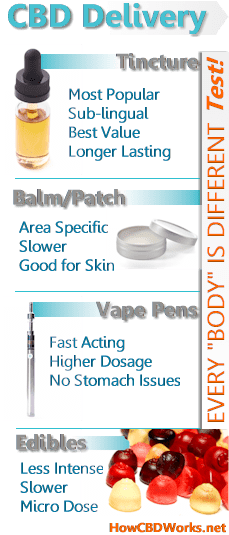
The CBD oils can take 20-30 minutes to start their effects but they're longer lasting.
The vapes can be almost instantaneous.
Some people use the oils for chronic maintenance and the vapes for spot needs.
Let us know your CBD results here to help others!
What Is The Best CBD For Depression
There are a few considerations here:
- Type of CBD for depression
- Full Spectrum versus Isolate for depression
- Brand of CBD
We'll discuss the type of CBD delivery below.
What about full-spectrum versus CBD Isolate?
Full Spectrum versus Isolate for depression is interesting.
As we mentioned above, some of the other cannabinoids might also have anti-depressant effects..
CBC for example is showing promise.
We expect much more research on the other cannabinoids shortly.
The big plus for CBD isolate (by itself) is that many people have histamine reactions to plant substances and/or botanicals.
There are other substances (which can be good for you) in hemp oil such as terpenes, flavonoids, and more.
If you have a sensitive system, these may not make you feel well.
We would hate for people to miss out on the benefits of CBD due to an allergic reaction to other substances in the plant.
Maybe start with isolate and go forward from there!
Best Brand of CBD for Depression
Check our page where we screened the major CBD brands for safety, cost, and quality of product here:
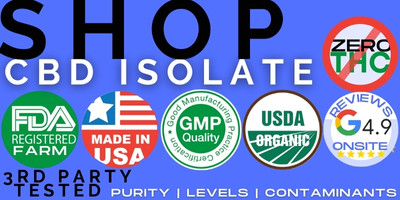
You can also see the comparison of CBD brands here.
Let's help each other as CBD helps us!
What CBD Dosage For Depression
This is a common question...how much CBD should I take for depression.
Here's the basic guideline:
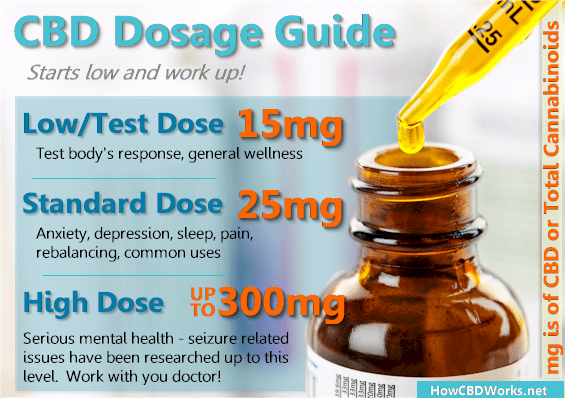
25-30mg is generally thought of as the baseline for ongoing therapeutic results with depression.
Higher doses of 300-600mg have also been tested for more acute and serious depression.
There's even studies up to 1500mg (mainly to test safety).
If 600mg was used for addressing psychosis, depression should fall within or below that range.
Again, let us know your results based on the dosage here.
Where To Buy CBD For Depression
There are a lot of bad brands out there.
Just trying to cash in on the CBD craze.
That's partially why we built this site...to weed (sorry) out the bad CBD.
Check out our screen list of CBD brands and products here:

You can even shop by CBD for depression.
We are SO excited after hearing feedback from people with depression.
We're talking about a massive reduction in suffering from little to no side effects.
That can bring a smile to all our faces!